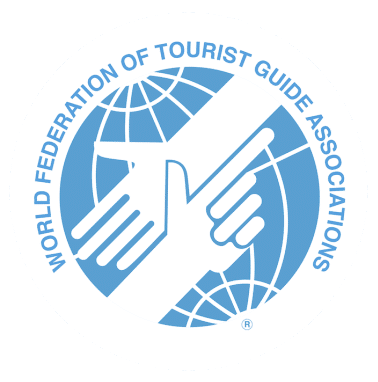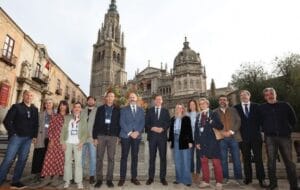The World Federation of Tourist Guide Associations (WFTGA) proudly commends the City of Toledo (Spain) for its pioneering municipal ordinance designed to manage tourist flows in the historic city centre. This forward-looking regulation marks a decisive step toward a sustainable, inclusive and resident-friendly tourism model, balancing the needs of the local community with those of visitors and professionals.
At the heart of this initiative lies the active and ongoing involvement of qualified tourist guides, most notably the Regional Association of Tourist Guides of Castilla-La Mancha (APITCLM), a member of CEFAPIT and the European Federation of Tourist Guide Associations (FEG). From the earliest stages of consultation through to the implementation phase, the voices of working guides were not only heard but truly integrated into the policy framework.
We extend special recognition to Mr Juan Ignacio Vázquez, a certified tourist guide in Toledo and Executive Board Member of the WFTGA. His unwavering commitment and leadership played a central role in facilitating this successful collaboration between city authorities and the guiding profession.
Key Provisions of the Ordinance – A Blueprint for Other Destinations
The ordinance, to be enforced from 1 January 2026, introduces several core measures that address long-standing challenges in urban tourism management—issues that are increasingly urgent in heritage cities around the world:
-
Group size limitation: Guided tours in sensitive areas are now restricted to a maximum of 30 persons, including the guide. This protects both the integrity of historic spaces and the comfort of residents and visitors alike.
-
Ban on loudspeakers and megaphones: To reduce noise pollution and preserve the tranquillity of the urban environment, amplification devices are completely prohibited. After 11:00 a.m., only wireless audio systems(whisper systems) may be used—encouraging clear, respectful communication.
-
Strict ban on street-based promotion and sales: The ordinance prohibits the marketing or sale of tourism services in public spaces, effectively addressing the challenges posed by unregulated “free tours” and commercial street solicitation.
-
Regulation of movement and conduct: Measures such as single-file walking, bans on blocking entrances or intersections, and priority access for mobility-restricted persons ensure a more fluid, accessible and dignified experience for all.
These provisions reflect best practices in responsible guiding and urban tourism management, and are urgently needed in other high-pressure destinations grappling with overtourism, overcrowding, and resident fatigue.
The Essential Role of Tourist Guides in Policy-Making
The success of this ordinance is a testament to the power of collaboration with professional tourist guides. Guides offer first-hand knowledge of visitor behaviour, spatial dynamics, and the real-time challenges of operating in complex urban environments. Including their insights is not only sensible – it is essential for policies that are both effective and enforceable.
This initiative is a model of how cities can shape realistic, enforceable, and respectful tourism regulations when they engage with qualified local stakeholders. It also exemplifies the principles of the WFTGA Code of Guiding Practice, which champions professional standards, cultural sensitivity, ethics, and sustainability in tourism.
We strongly encourage municipalities worldwide to draw inspiration from Toledo’s example, and to include accredited guides in all discussions on tourism policy and urban management. Meaningful inclusion leads to meaningful solutions.

